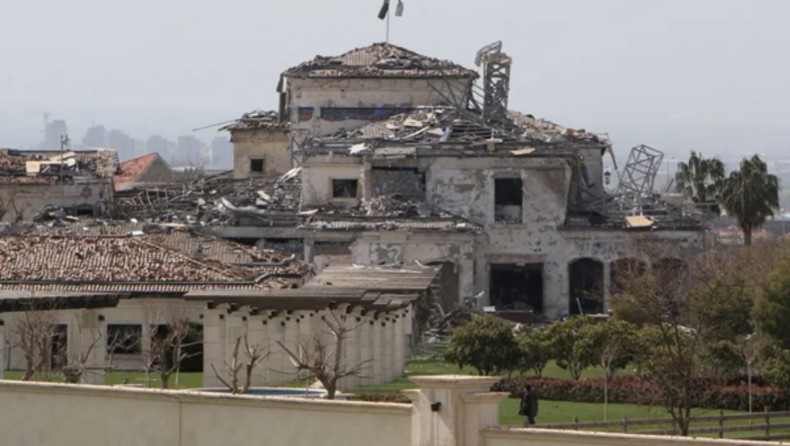Early Sunday, Iranian missile strikes near a huge US consulate complex in Erbil, Iraq’s northern Kurdish regional capital, were blamed on retaliation for an Israeli strike on Syria that killed two Revolutionary Guard troops.
There were no reported injuries as a result of the incident. This strike resulted in a considerable increase in tensions between the United States and Iran.
Iraq, whose government is allied with both countries, has regularly served as a flashpoint for enmity between the long-standing adversaries. The incident occurred just days after Iran stated its desire to retaliate against Israel for killing two Revolutionary Guard soldiers in a strike near Damascus, Syria.
Responses from different stakeholders
According to a statement on its website, Iran’s formidable Revolutionary Guard claimed responsibility for the strike in Erbil on an Israeli “strategic centre of conspiracy.” It did not disclose any other information, but said in a statement that Israel was on the offensive and that any subsequent strike will be greeted with a brutal, decisive, and catastrophic response.
Earlier, a spokesperson for the United States State Department called the attack “outrageous,” but added that no Americans were injured and that no damage was done to U.S. government facilities in Erbil.
The attack was condemned by the United States Ambassador to Iraq, Mathew H. Tueller, who stated that “Iranian regime elements have claimed responsibility for this attack and must be held accountable.”
More recently, Iranian proxies are believed responsible for an assassination attempt late last year on Iraq’s Prime Minister Mustafa al-Kadhimi.
Prime Minister Mustafa al-Kadhimi of Iraq condemned the missile strike on Twitter, calling it “an attack on the security of our people.” Masrour Barzani, the prime minister of the Kurdistan Region, said on Facebook that Erbil “will not bow to the cowards who carried out the terrorist attack.”
Escalations to the tension in the region
The missile barrage came at a time when tensions in the region were high. Negotiations in Vienna over Iran’s shattered nuclear deal have come to a “standstill” due to Russian demands about sanctions against Moscow for its involvement in the Ukraine conflict.
Meanwhile, Iran has suspended its secret Baghdad-mediated talks aimed at defusing years-long tensions with regional rival Saudi Arabia, following Saudi Arabia’s largest known mass execution in modern history, which resulted in the deaths of more than three dozen Shiites.
The U.S. presence in Iraq has long been a flashpoint for Tehran, but tensions spiked after a January 2020 U.S. drone strike near the Baghdad airport killed a top Iranian general. In retaliation, Iran launched a barrage of missiles at the al-Asad airbase, where U.S. troops were stationed. More than 100 service members suffered traumatic brain injuries in the blasts.
Official news outlets and social media accounts associated with the Guards also reported that the strike was carried out at approximately 1:30 a.m local time, which coincided with the time of Maj. Gen. Qassim Suleimani’s death by an American drone strike in January 2020.
Iraq has been wracked by chronic instability since the defeat of the Sunni Islamist group Islamic State in 2017 by a loose coalition of Iraqi, U.S.-led and Iran-backed forces.
Since then, Iran-aligned militias have attacked US military and diplomatic installations in Iraq on a daily basis, according to US and Iraqi authorities. Though, Iran maintains its innocence in such assaults.
Published By : Revathy G Sanal
Edited By : Subbuthai Padma













